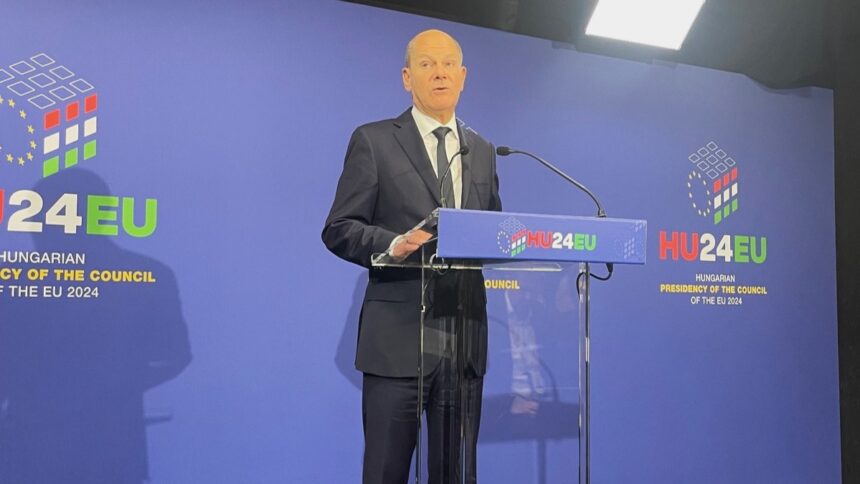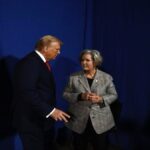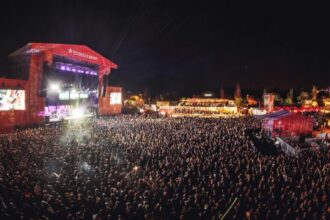Germany’s Chancellor Olaf Scholz has indicated he may be open to moving forward the date of a confidence vote in his government, a move that could pave the way for snap elections as early as January. Originally scheduled for mid-January, this vote now has the potential to trigger much earlier elections, depending on political negotiations. The shifting timeline has sparked debates across the political spectrum, with opposition parties pushing for an immediate vote to reduce political uncertainty.
Tensions Within Scholz’s Coalition Lead to Fragile Minority Government
Scholz’s remarks come after a dramatic collapse of his three-party coalition government. The chancellor, leader of the Social Democrats (SPD), sacked Finance Minister Christian Lindner, leader of the pro-business Free Democrats (FDP), in what was the culmination of years of tensions within the coalition. The FDP had been at odds with the SPD and the Greens over Germany’s economic policy, leading to Lindner’s departure from the cabinet.
The exit of the FDP ministers left Scholz leading a minority government consisting of the SPD and the Greens. While this government remains in place for now, the move has escalated political instability in Germany, with growing calls for fresh elections.
As pressure mounted, Scholz said he may change the date of the scheduled vote of confidence. “It would be beneficial if the democratic factions in the Bundestag could agree on what legislation can be passed this year,” Scholz stated at an unofficial EU conference in Budapest on Friday. He clarified that the date of the vote may be affected by this arrangement. But he also emphasized that organizing a fair and democratic vote required enough time, thus the election’s timing was not only a political choice.
Opposition Parties Push for Immediate Confidence Vote
Opposition parties, especially the Christian Democratic Union (CDU), have strongly criticized Scholz’s delay in calling a confidence vote. CDU leader Friedrich Merz condemned the chancellor’s decision as “irresponsible” and argued that Germany needed a swift resolution to avoid prolonged political uncertainty. Merz, who has been leading the charge for an early vote, pointed out that a majority of Germans agree with this view.
Recent polling shows overwhelming support for an early election, with 65% of voters backing the idea of holding new elections as soon as possible. Only 33% of the population supports Scholz’s plan to wait until March. The CDU and other opposition groups argue that bringing forward the vote could minimize the risk of political paralysis and allow for a quicker return to stability.
Despite the pressure from opposition leaders, Scholz has thus far resisted calls for an immediate vote. He continues to prioritize reaching agreements on key legislative matters before setting a new date. He pointed out that the timing of the election must also consider the logistical challenges involved in organizing a democratic election.
Robert Habeck Emerges as Green Candidate for Chancellor
Vice Chancellor Robert Habeck of the Greens has entered the race for the chancellorship in the next election as Germany’s political situation becomes increasingly hazy. In a recent social media video, Habeck, who has long coveted the top post, made his intentions apparent by portraying himself as a possible unifying force who could guide the nation through difficult times.
*** News: Scholz ist offen für einen früheren Termin für die Vertrauensfrage – es hänge von den anstehenden Gesetzensentscheidungen ab. Er wolle bald mit der Opposition sprechen.
*** pic.twitter.com/J9yOn4nNAs
— Gordon Repinski (@GordonRepinski) November 8, 2024Habeck highlighted in the film his dedication to tackling issues that affect regular Germans, such environmental preservation, educational access, and job stability. He also mentioned how society is becoming more divided and how far-right and far-left movements are becoming more powerful. He declared, “We must win the fundamental conflict of our times between authoritarian regimes and liberal democracies,” demonstrating his resolve to bolster Germany’s position in the international struggle for democratic ideals.
Merz Criticizes Habeck’s Timing
Habeck’s bid to lead Germany has not been universally welcomed, particularly by the opposition. Friedrich Merz, the CDU leader, took aim at Habeck’s candidacy, suggesting that it was “humorous” for someone from a party polling at such low levels to seek the chancellorship. Nevertheless, Habeck’s announcement has further complicated the political equation in Germany, as the country braces for what could be a highly unpredictable election.
While Habeck’s candidacy is still subject to approval by the Green party’s leadership, the news has already stirred discussions within German politics about the future direction of the country. His stance on key issues like immigration and climate policy has made him a somewhat controversial figure, but his leadership could signal a shift in how Germany approaches both domestic and international challenges.
Scholz’s Leadership Under Scrutiny
Scholz’s handling of the coalition crisis has placed his leadership under intense scrutiny. The sacking of Christian Lindner and the subsequent collapse of the government were seen by many as signs of a lack of cohesion within the SPD-Green-FDP alliance. Critics argue that Scholz’s inability to navigate the growing tensions within the coalition could have long-term consequences for his party and his standing as chancellor.
At the EU summit in Budapest, Scholz sought to reassure European leaders about Germany’s commitment to the EU’s unity, particularly in light of ongoing challenges such as the war in Ukraine and rising tensions with Russia. However, the political instability within Germany is unlikely to go unnoticed by EU partners, who may begin to question the country’s ability to lead within the bloc.
A Divided Germany
Germany’s political unrest is a reflection of the nation’s larger divides. Many Germans have lost faith in the political system as a result of the growth of populist movements on both the far-right and far-left. 84% of people want an early election, according to a new poll, highlighting how frustrated many voters are with the status quo.
Scholz’s delayed confidence vote has sparked a fierce debate about the future of Germany’s leadership, and with key figures like Habeck and Merz positioning themselves for the chancellorship, the next few months could be crucial for the country’s political landscape.
As Germany navigates this uncertain period, the timing of the confidence vote and the broader political fallout will be closely watched, both within Germany and across Europe. With early elections potentially on the horizon, the next few months could determine not only the fate of Scholz’s government but also the direction of the country’s political future.
Read More: Major Drug Super Lab Busted in Canada: Record Seizures of Fentanyl and Firearms






